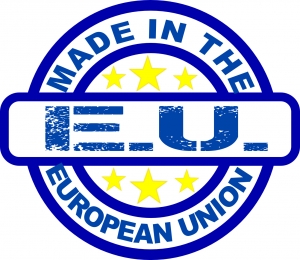The EU too is besieged by corporations

Summary: A roundup of news about patent monopolies and in particular the immense power wielded by giant multi-national corporations that steer the debate and acquire trans-Atlantic monopolies on ideas, always against citizens' interests
Some well-meaning people still focus on patent trolls, not on software patents. The world's largest corporations engage in a coup or an occupation against policy-makers and it shows. This includes some who purport to be supporting FOSS, fair competition, etc. Melanie Chernoff, the Public Policy Manager for Red Hat, says that "North Carolina says 'no' to patent trolls". To quote the article published this afternoon:
North Carolina became the latest state to take a stand against patent trolls when NC Governor Pat McCrory signed a new law last week aimed at preventing bad faith assertions of patent infringement. Patent trolls (more officially called "patent assertion entities" or "non-practicing entities") are known for sending very vague letters, with often meritless claims, to other businesses in the hopes of extorting a settlement to avoid the nuisance of a lawsuit.
But this is not the thing to strive for. The real (core) issue is patent scope and even those who spend all their time diverting attention and/or arguing about "trolls" (front groups
CCIA with
its lawyers who are funded by giant corporations)
increasingly -- however rarely -- recognise the issue of scope while still trying to shift attention to "trolls".
The other day
The Economist, widely recognised for its pro-Big Business agenda, published
this article titled "Patents that kill". To quote some of the relevant parts:
IN 1742 Benjamin Franklin invented a new type of stove, for which he was offered a patent. Franklin refused it, arguing in his autobiography that because “we enjoy[ed] great advantages from the inventions of others, we should be glad of an opportunity to serve others by any invention of ours.”
[...]
The pharmaceutical industry makes the best case for patents (and makes the most of patents when they are approved). Medical research and development (R&D) is costly. Moreover, although a patent application must be filed straight after a drug discovery, clinical trials necessary for drug approval may take several years. This shortens the effective life of the patent. As three economists argue in a recent paper this causes problems. In order to prove the efficacy of a drug, pharmaceuticals have to match the length of a clinical trial to the expected survival time of the patients. A clinical trial for patients with metastatic prostate cancer lasts only three years compared to an 18-year-long trial for those suffering from a milder, localised prostate cancer. Since a typical patent is in force for 20 years, firms only have two years of effective patent length left to commercialise a new drug against localised prostate cancer.
Here we deal with an issue that has nothing to do with patent trolls but with patent scope.
Dealing with the
issue of European approach towards software patents, Glyn Moody
put the words of some British patent lawyers in a frame of mind that assures us Europe is assimilating to the US (and USPTO), not the other way around. To quote Glyn Moody: "It would be easy to assume that the European Patent Office (EPO) stands in the same relationship to the European Union as the USPTO does to the United States, but that's actually wide of the mark."
There is corporate control of the
USPTO, which is operating against the interests of US citizens (except the top 1% perhaps). The lawyers' blog has apparently produced "a great piece, but its gentle humor exposes a serious point about the EPO: it is literally above the law.
"That emphasizes once more that the unitary patent system has been decoupled from the normal legislative and democratic processes of the European Union, and thus will be under no obligation to take heed of the economic interests of the European citizens."
We are soon going expose corruption at the EPO, based leaks from a source which is pursuing encryption at the moment.
Moody continues: "There is no precedent in the political history of modern democracies where important property issues affecting the economic sustainability and development of a country, and the proprietary rights and business prospects of its people, were conclusively and exclusively taken by a judicial body at supranational level. A democratic policy-making process for the determination of patents as objects of property exists, of course, in all countries of the world, including the US, whose system the UPC tries to imitate. The difference is that the US unified patent system does not escape democratic control, and the economic policies that it serves are widely debated by legislators, judges, economists, lawyers and industry players, all of whom are residents of the same country."
Finally, says Moody: "It's still early days for the unitary patent and the Unified Patent Court, so it's not yet clear how the new system will work, and how serious the problems will be. The danger is that Eponia might turn out to be not so much a quaint oddity in the European political landscape as a dangerous rogue state with serious negative consequences for the region's businesses and citizens."
The system is out of control at the moment. It gets worse as patents expand in terms of scope (especially in Europe but also in other continent) while the US merely makes baby-steps in the opposite direction, while much of the effort is being diverted towards "trolls" (small abusers), of course at the behest of large corporations, as usual in US politics as per the
modus operandi.
⬆

